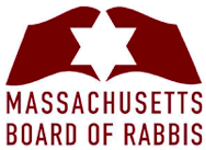A thought as Shabbat approaches.
With this week’s sidra, we return to the Book of Exodus. As Exodus opens, the Israelites are well settled in the region of Goshen in the Land of Egypt. Then, of course, a new Pharaoh comes to power—a king who does not know history and the legacy of Joseph. This Pharaoh is a brute and a thug, but also a master manipulator of his citizenry. And he speaks words of incitement:
הָ֥בָה נִֽתְחַכְּמָ֖ה ל֑וֹ פֶּן־יִרְבֶּ֗ה וְהָיָ֞ה כִּֽי־תִקְרֶ֤אנָה מִלְחָמָה֙ וְנוֹסַ֤ף גַּם־הוּא֙ עַל־שֹׂ֣נְאֵ֔ינוּ וְנִלְחַם־בָּ֖נוּ וְעָלָ֥ה מִן־הָאָֽרֶץ׃
He said to his people, “Look, the Israelite people are much too numerous for us.
Let us deal shrewdly with them, so that they may not increase;
otherwise in the event of war they may join our enemies
in fighting against us and rise from the ground.” (Ex. 1:10)
They’re just words, right? The same sorts of words and logic that common gutter racists have used countless times throughout history. But immediately in the next verse, Pharaoh’s audience acts on his words:
וַיָּשִׂ֤ימוּ עָלָיו֙ שָׂרֵ֣י מִסִּ֔ים לְמַ֥עַן עַנֹּת֖וֹ בְּסִבְלֹתָ֑ם
So they [they?!] set taskmasters over them to oppress them
with forced labor… (Ex. 1:11a)
That’s how Israel became enslaved. You can imagine their bystander neighbors muttering, “Hey, I’m not racist, but if we don’t do something, there won’t be any real Egyptians left around here anymore…”
Yet lying tyrants are never satisfied. They always have to up their game:
וַיֹּ֙אמֶר֙ מֶ֣לֶךְ מִצְרַ֔יִם לַֽמְיַלְּדֹ֖ת הָֽעִבְרִיֹּ֑ת אֲשֶׁ֨ר שֵׁ֤ם הָֽאַחַת֙ שִׁפְרָ֔ה וְשֵׁ֥ם הַשֵּׁנִ֖ית פּוּעָֽה׃
וַיֹּ֗אמֶר בְּיַלֶּדְכֶן֙ אֶת־הָֽעִבְרִיּ֔וֹת וּרְאִיתֶ֖ן עַל־הָאָבְנָ֑יִם אִם־בֵּ֥ן הוּא֙ וַהֲמִתֶּ֣ן אֹת֔וֹ
וְאִם־בַּ֥ת הִ֖יא וָחָֽיָה׃
The king of Egypt spoke to the Hebrew midwives,
one of whom was named Shiphrah and the other Puah,
saying, “When you deliver the Hebrew women, look at the birthstool:
if it is a boy, kill him; if it is a girl, let her live.” (Ex. 1:15-16).
This is the Egyptian version of the Big Lie, a term coined in Mein Kampf. If you repeat Big Lies often enough, and with enough charisma, people who don’t know better will follow, even to the point of dehumanizing others. Even to the point of radical violence.
Here’s what Yale history professor Timothy J. Snyder says about the Big Lie, in his crucial book On Tyranny (New York, Tim Duggan Books, 2017):
As observers of totalitarianism such as Victor Klemperer noticed, truth dies in four modes, all of which we have just witnessed.
The first mode is the open hostility to verifiable reality…
The second mode is shamanistic incantation. As Klemperer noted, the fascist styled depends upon “endless repetition,” designed to make the fictional plausible and the criminal desirable.
The next mode is magical thinking, or the open embrace of contradiction… requiring a blatant abandonment of reason.
The final mode is misplaced faith. It involves the sort of self-deifying claims… “I alone can do it.” (pp.66-70)
The American version of the Big Lie has been cultivated for a long time, by Donald Trump, his enablers, conservative media, et al. They have told their audiences outright falsehoods for years. They have repeated those mantras constantly (“Socialism!”, “Lock her up!”, “The elections are rigged!”). They love magical thinking (“the pandemic will disappear like a miracle”). And the misplaced faith: scientists, journalists, experts in the field, etc., are all lying; only Trump tells you the truth.
As you know, over sixty court cases verified that Trump decidedly was the loser in the November election. Governors and election officials from both parties around the country confirmed that the election was completely secure and accurate.
And yet the President and his minions repeat their Big Lie, that it was rigged and stolen.
The angel of decency passed over these people.
Now we’ve seen the fulfillment of what the Big Lie has done after all these years. Monsters in Auschwitz shirts and MAGA hats, with their gun in one hand and the flag of Southern treason in the other, storming the United States Capitol.
And when it was over, and the U.S. Congress reconvened to ratify the results of the November election, still eight Republican Senators and one hundred thirty-nine Republican Representatives voted to overturn the democratic election results representing the will of the American people. Learn their names; they are seditious traitors to democracy.
But those ignoble 147 know an open secret: Repeat the Big Lie long enough and the true believers will fall into line. And then G-d have mercy on the nation.
Don’t expect divinely-ordained miracles—a/k/a “Ten Plagues”—to rescue America from the suffering that the Big Lie has created. As Snyder instructs us:
Post-truth is pre-fascism. (p.71)
But Shabbat is coming, so we have to find solace and comfort somewhere. It’s there in the Torah: While the rest of the Egyptians were following the lies that Pharaoh fed them—“we have to put Egypt First”—there were some heroes. We know their names: Shiphrah and Pu’ah, two midwives, who said that no matter how personally risky it would be for them to defy Pharaoh’s whims, they would not throw babies into the Nile.
We know their names.
The Torah doesn’t tell us the name of this Pharaoh. As far as the text is concerned, he’s just another tyrant of the sort we’ve seen in every generation, as the Haggadah reminds us. But these two Hebrew midwives, people with the strength of character to stand up to tyrants, who do what is right and decent and life-affirming, those are the names that get recorded and celebrated for all posterity.
Each of us is called upon, at this crucial moment, to be a Shiphrah and a Puah. Pharaohs and their enablers inevitably crumble under the weight of their own lies. Their names will, eventually, be buried in the shifting sands. Those who speak the truth, and apply it with decency, compassion, and love, will be the ones whose names endure.
Photo credit: Olam HaTanakh: Shemot, Tel Aviv, 1998



